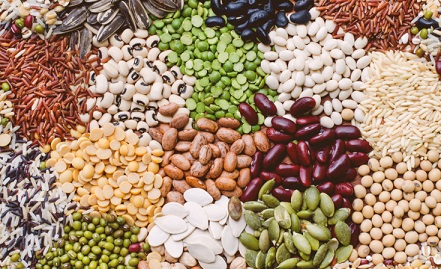Should we accept the planned disappearance of the International Seed Treaty?

Press release, Brussels, 31 Oct 2019
Fifteen years after its entry into force in 2005, the International Treaty on Plant Genetic Resources for Food and Agriculture faces the refusal of the seed industry to pay its debt and respect farmers’ rights. Will its governing body, which is meeting in Rome from 11 to 16 November, be able to face this threat to its survival?
Adopted in 2001 by the United Nations General Assembly, this Treaty aims to facilitate access for all to the millions of seed samples selected and saved by hundreds of generations of farmers and stored in public gene banks. This treasure made available by the Treaty is not only the raw material of the seed industry, but it is also the guarantee of food security for our children and grandchildren.
We do not know today under what conditions, particularly climatic conditions, future generations will be confronted with in order to produce their food. We know that commercial seeds selected for today’s industrial agriculture will no longer be suitable, but we do not know which seeds saved by farmers and in gene banks will be essential for selecting the seeds of tomorrow. For this reason, the Treaty only guarantees access to seeds that States have pooled in exchange for:
- the sharing of the benefits that the seed industry derives from it in order to remunerate the renewal of their diversity by farmers and their conservation in developing countries;
- the guarantee of their renewal through the recognition of farmers’ rights to save, use, exchange and sell their own seeds.
Unfortunately, while the seed industry has benefited enormously from this facilitated access to its “resource”, it has never wanted to share them equitably and the majority of States continue to adopt intellectual property laws under its pressure that violate farmers’ rights. In response to this failure, the Treaty began work in 2014 to “improve” it’s functioning. Unfortunately, five years of laborious discussions did not allow the negotiators representing governments to propose a consensual solution.
The mirages promised by genetic technologies are the first cause of this failure. The major seed companies believe that they no longer need the physical seeds pooled by the Treaty. They claim to use only the “information” of their genetic sequences and refuse, with the rich countries that support them, to pay for access to this dematerialized data in a digital form. They also want to get rid of the last international negotiating space on farmers’ seed rights: the Treaty.
It is true that in recent years, most of their financial profits have shifted from the market for physical seeds to the market for dematerialized information and patents that confiscate them. But this virtual market is leading us to disaster. Genetic technologies are dramatically accelerating the erosion of biodiversity and thus threatening our future. Agriculture dependent on industrial seeds produces only a quarter of the food available on the planet using three-quarters of the land and water resources, while seeds patiently adapted by farmers to each of their local growing conditions produce three-quarters of our food, using only a quarter of the land and resources.
Does the failure last week in Rome of the negotiations launched five years ago to propose to the Treaty’s governing body a solution that would guarantee its survival mean that it will soon disappear?
La Via Campesina calls on governments around the world that will be meeting for the eighth formal session of the Treaty’s governing body, to build with farmers and civil society an equitable mechanism for the renewal, conservation and access to seeds that are essential not only to our current food, but also to the food of our children and grandchildren. Those who refuse will have to account for it to the younger generations who are rising up all over the world against the irresponsibility of many leaders and the suicidal greed of the financial markets.
Contacts:
- Guy Kastler – ECVC Seeds Group : + 33 603 94 5721 – FR
- Alessandra Turco – ECVC Coordination Committee : +39 347 642 7170 – IT, ES, FR
- Antonio Onorati – ECVC Seeds Group : +39 3408 2194 56 – IT, FR, EN
Photo credit : Shutterstock-Nopparat-Promtha
